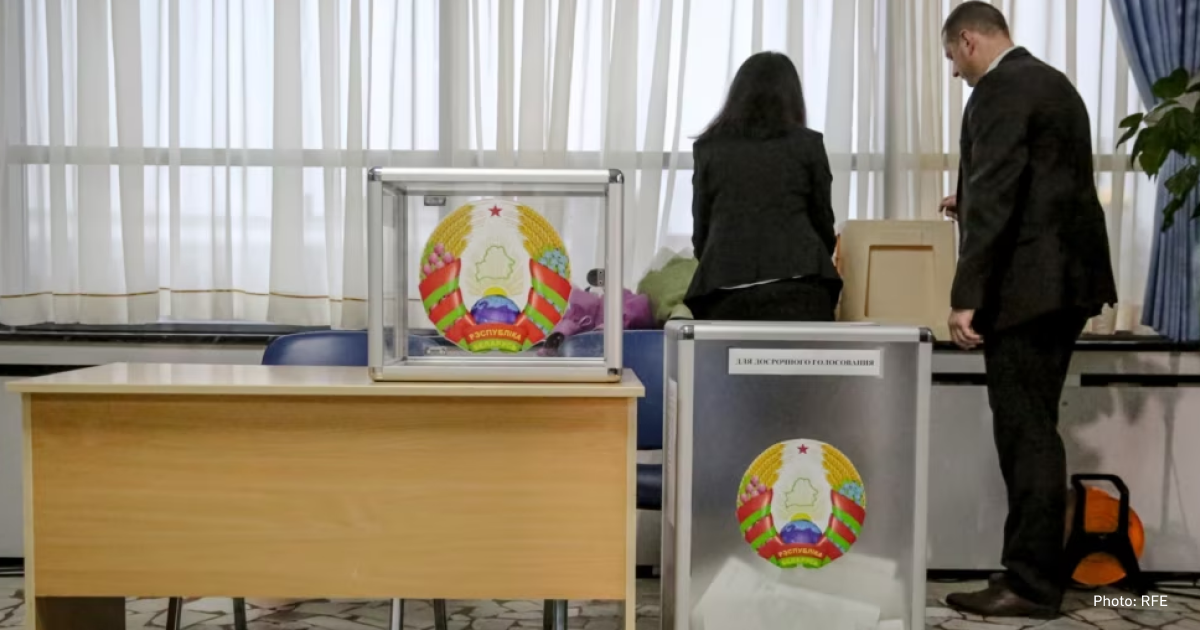Parliamentary and local 'elections' in Belarus: what do human rights defenders say, and what is the international community's response?
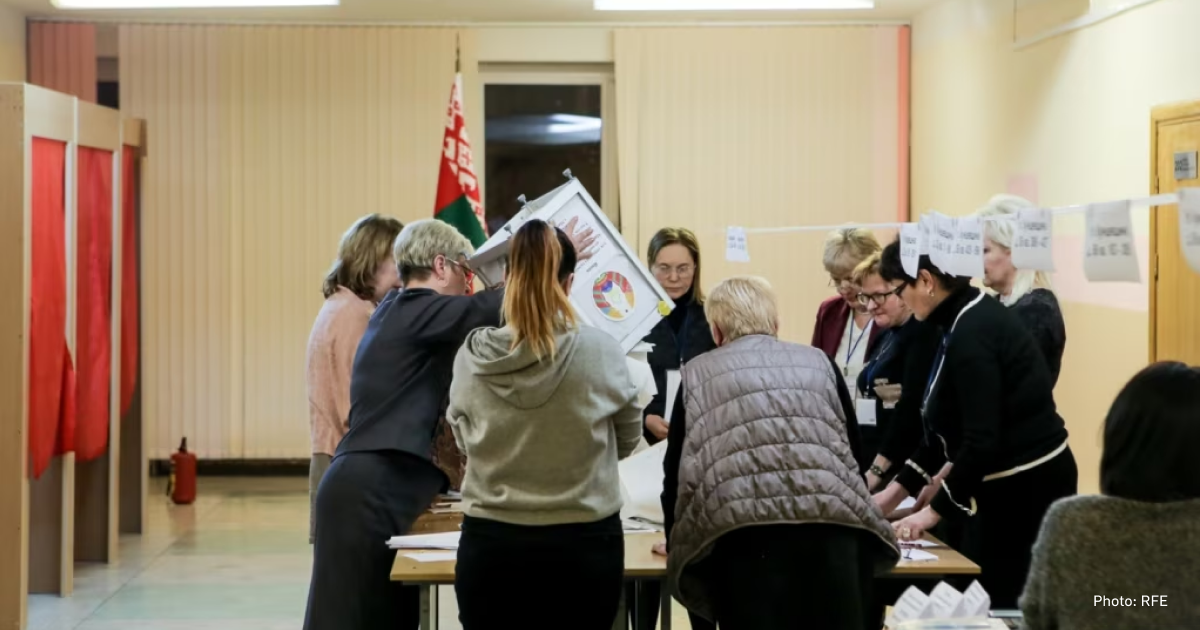
What happened?
On February 25, Belarus held the so-called unified elections for members of parliament and local councils. The election campaign lasted from January 31 to February 24, and candidates were registered from January 16 to 30.
Only four parties were allowed to participate, all supporters of Lukashenka's policies: "Belaya Rus”, the Communist Party, the Liberal Democratic Party and the Party of Labour and Justice. About a dozen parties were refused registration.
In addition to election day on February 24, early voting took place in Belarus from February 20 to 24 (a similar practice of early voting will be used in the presidential elections in Russia this year, which will last three days: from March 15 to 17 — ed.). The Belarusian Central Election Commission (CEC) reported a record turnout during the early voting. According to the CEC, 41.71% of voters took part.
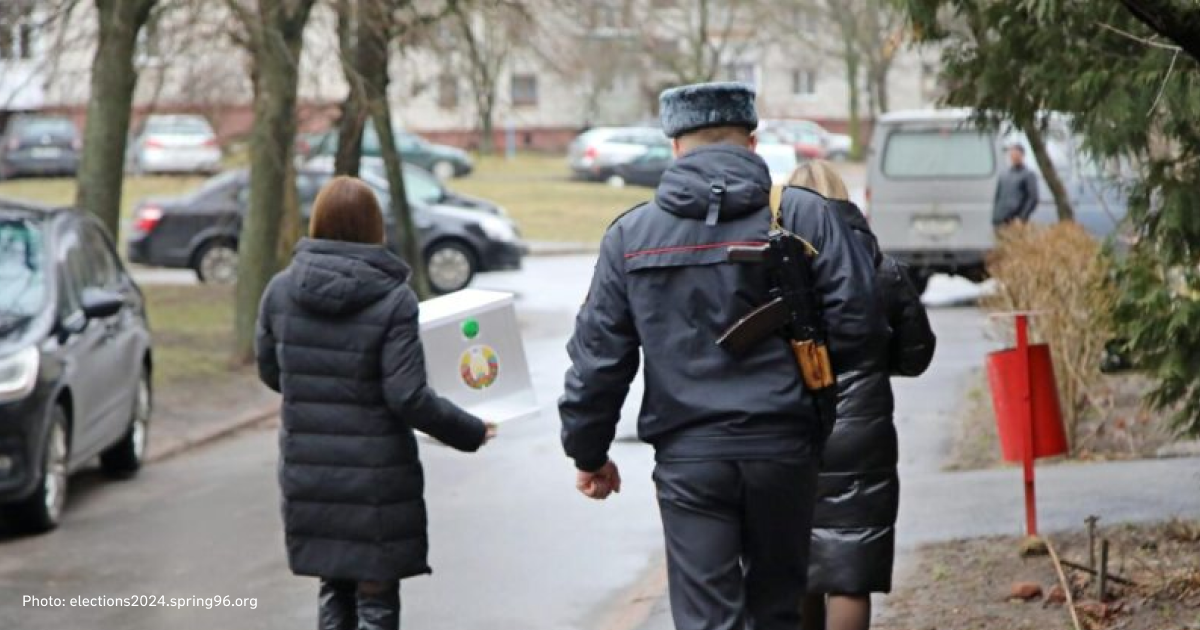
According to the Belarusian CEC, the overall turnout was over 70%. However, the turnout threshold was abolished, meaning the elections would be valid with any number of voters.
There were no independent observers at the elections, as Belarus did not allow representatives of the Office for Democratic Institutions and Human Rights of the Organisation for Security and Cooperation in Europe (OSCE).
The Belarusian authorities classified the members' names of the election commission while polling stations were heavily guarded.
What do human rights activists and the opposition say?
In late January, the Belarusian Helsinki Committee and the Human Rights Centre Viasna reported violations in forming local election commissions. They say that the smaller number of local election commissions and their composition may indicate the authorities' more significant control over the electoral process and the desire to form commissions of people loyal to the authorities. A total of 5,411 local election commissions were created in Belarus. This is 374 less than in the last parliamentary elections and 459 less than in the previous local elections.
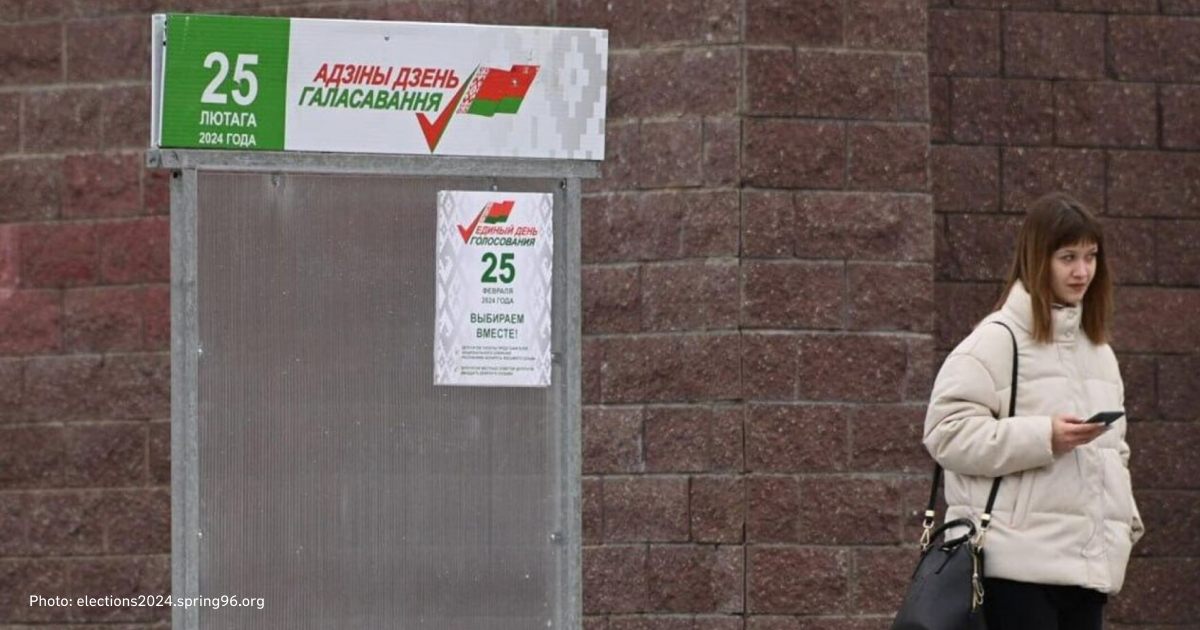
The Belarusian opposition and Viasna criticised the early voting system, saying that it was another mechanism used by the Belarusian authorities to falsify the elections. The opposition explained that in the current circumstances, ballot boxes remained unprotected for five days.
The Human Rights Centre Viasna claimed that many voters, including students, military personnel, teachers and other civil servants, were forced to participate in early voting.
On election day, opposition leader Sviatlana Tsikhanouskaya referred to the election as a 'farce' and called for a boycott.
After the vote, she wrote: "A circus will not turn a dictator into a democrat. Instead, it showed us the unity of the world in support of a free Belarus. Thank you for standing with us."
How did the international community respond to the 'elections'?
Members of the inter-factional association ‘For Democratic Belarus’ in the Verkhovna Rada of Ukraine called the February 25 elections in Belarus 'an instrument for deepening Lukashenka's dictatorship'.
"Today's parliamentary and local elections are not a process of expressing the will of the Belarusian people, but only an instrument for deepening and establishing the dictatorship of the self-proclaimed President Lukashenka,"
the Ukrainian parliamentarians said.
The US State Department condemned the Lukashenka regime's 'sham parliamentary and local elections'. They added that the elections were held in an atmosphere of fear that makes 'any electoral process untenable' and noted that Lukashenka's regime continues detaining over 1,400 political prisoners. All independent political figures are either in prison or in exile.
The Democratic Belarus parliamentary group in the German Bundestag also criticised the elections in Belarus. The group's representative, Robin Wagener, said they were neither fair nor free.
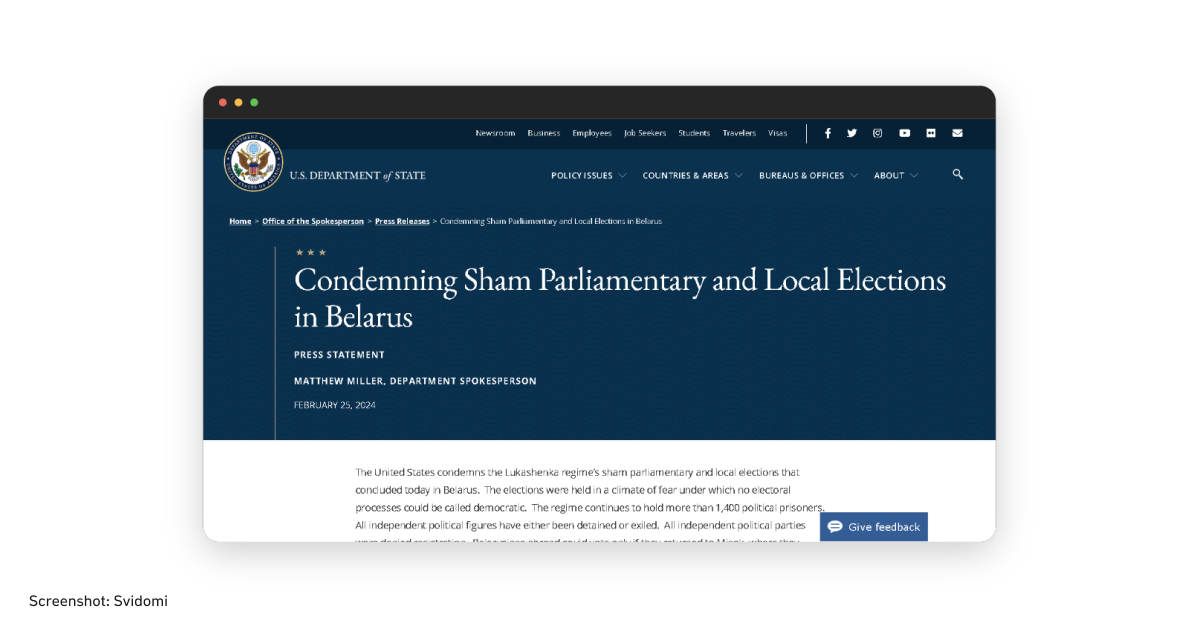
Lukashenka to run for another term
On February 25, the self-proclaimed president of Belarus, Alyaksandr Lukashenka, said at a polling station that he would 'run' for another term in the 2025 presidential elections. Lukashenka has been Belarus' permanent president since 1994.
He explained his decision by saying he could not leave the presidency at such a 'difficult and uncertain time'. To do so, the self-proclaimed president said, would be a betrayal.
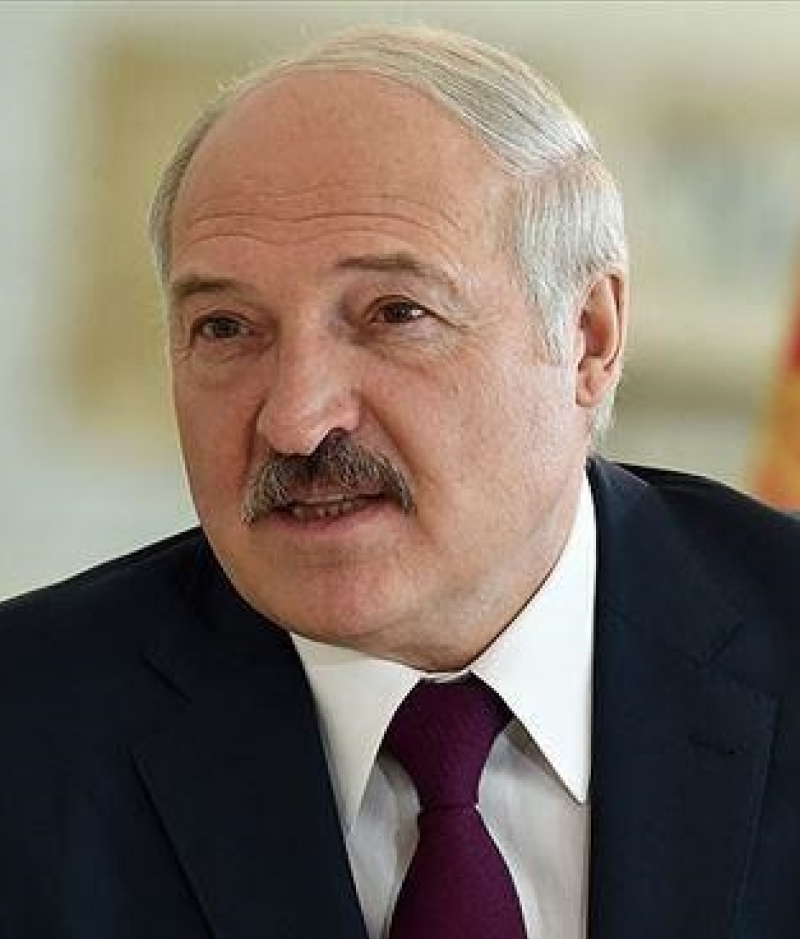
"I will go, I will go, I will go. Tell them (the Belarusian opposition — ed.) that I will go! And the more difficult the situation becomes, the more you, and I, and society will be under pressure, the sooner I will run in these elections. Don't worry, we will do what is right for Belarus,"
Lukashenka said.
In response, Belarusian opposition leader Sviatlana Tsikhanovskaya said Lukashenka should "not deceive everyone, but crown himself".
At the same time, Lukashenka spoke out against unification with Russia, saying that "neither Russia nor Belarus will support the unification of the two states; such a step will only aggravate the situation".
According to Lukashenka, a "union state" is a union of "two sovereign, independent states".
